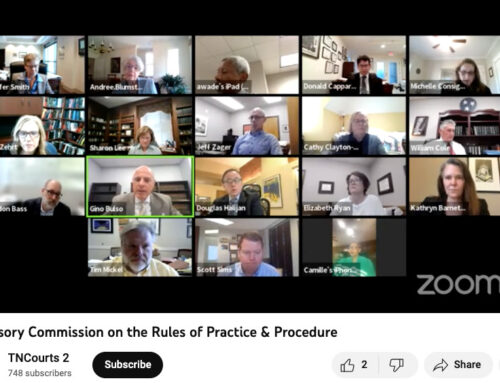Weekend roundup: Using the sunshine laws
There were two great examples this weekend of Tennessee reporters being watchdogs in their communities, digging deeper on whether sunshine laws were being followed.
Amelia Morrison Hipps with The Wilson Post contacted the board chair and the attorney for the Wilson County Board of Education when she heard the board had planned a private meeting on Saturday to discuss a recent incident involving its director of schools, according to the article in The Wilson Post. She protested that no notice was given of the meeting. The board changed its meeting to Sunday and sent notices to media.
Hipps went on to write an article about open meetings law, particularly what the board could and could not do in its private meeting.
While any governing body is within its right to meet privately to receive advice from its attorney on pending or potential litigation, Hipps’ action was a good example of being a watchdog and letting the board know that the newspaper wanted the government body to operate with transparency. And to the board’s credit, it rescheduled the meeting, and held a small press conference afterward saying the board might call a special meeting open to the public later this week.
On the east end of the state, Megan Boehnke, higher education reporter for the Knoxville News Sentinel, questioned closure of the University of Tennessee athletics board meetings. The meetings had been open to the media since as early as 1990, but “the chancellor, athletics director and board chair decided to stop allowing public access last year,” Boehnke writes.
The 18-member athletics board includes two university trustees who are part of UT’s governing body and last year met three times on topics of NCAA violations, the athletic department’s roughly $100 million annual budget and the academic performance of some 500 student-athletes, according to the story.
The News Sentinel has previously obtained documents created by the athletics board under the open record laws, but now, Boehnke writes, the board has significantly reduced the number of documents it produces. Here is an excerpt from Boehnke’s reporting:
“Roughly this time last year, the UT board of trustees approved changes to the athletics board bylaws that reduced the membership from 41 to a ‘leaner and more efficient’ 18 representatives who would ‘be privy to real-time information on the finances, any compliance issues and other priorities and challenges facing our Athletics Department,’ according to a letter to trustees from (Athletics Director Dave) Hart and athletics board chair Don Bruce.
“The board, according to the same letter, serves an ‘advisory and oversight role’ for the athletics department — one of the largest programs in Division I sports with a roughly $100 million budget and 18 athletics teams.
“Since the trustees approved the changes, the athletics board has also significantly reduced the amount of documents and reports it distributed to members.
“During the April 2012 meeting, members received nearly 100 pages of documents, including reports on the budget, scholarships for athletes, game attendance, capital projects and fundraising.
“Over 2013’s three meetings — in April, August and November — the board members received a combined 26 pages of documents, including a report on NCAA violations and a one-page ‘academic review,’ according to documents released to the News Sentinel as part of a public records request.
“UT officials argued, however, that copy reports are no longer necessary because the board gets firsthand presentations from the chief financial officer, top academic advisers, compliance staff and others.
“The board also no longer keeps meeting minutes or submits written recommendations to the chancellor because Cheek and Hart have not requested them, Nichols added.”
TCOG is quoted in the story, as well as Frank Gibson, public policy director of the Tennessee Press Association, calling for transparency.
– Deborah Fisher, executive director of Tennessee Coalition for Open Government




